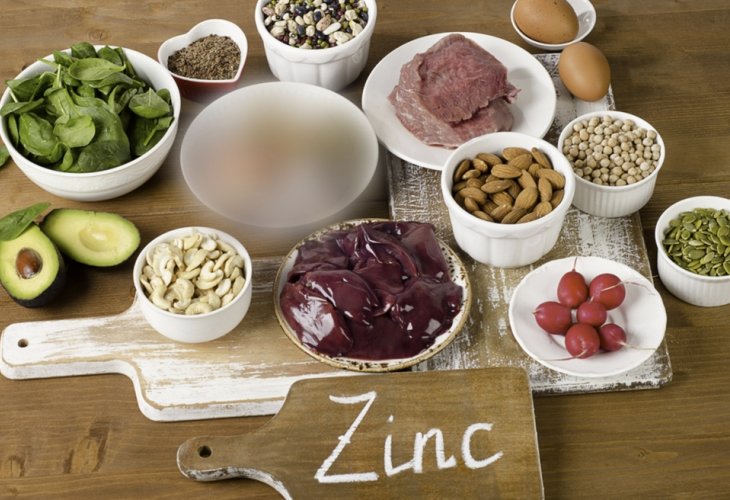Building Blocks: Essential Minerals - Calcium and Zinc
Why is calcium absorption so critical, and what exactly does zinc do for our bodies?
 (Photo: shutterstock)
(Photo: shutterstock)In our previous article, we discussed the general importance of minerals. Now, let’s dive into the first and most crucial mineral on the list: Calcium.
Calcium is an essential mineral important for the health of the skeletal system and bones. It is the primary mineral in building bone and maintaining its density. Calcium is vital for mental and physical well-being; it calms and relaxes muscles. 99% of the calcium we consume goes to our bones and teeth, while 1% serves numerous functions, including muscle contraction, blood clotting, a healthy nervous system, blood pressure regulation, and maintaining the blood’s pH balance. Absorbing calcium is not straightforward. Excess fat in food interferes with its breakdown, and a deficiency in vitamins C and D prevents absorption. High consumption of white sugar and meat leads the body to lose calcium.
Sources of calcium include whole sesame seeds, molasses, almonds, parsley, tofu, chickpeas, beans, and small sardines.
Signs of calcium deficiency in the body: extreme irritability, brittle nails, hair loss, high blood pressure, bone fractures.
To ensure good calcium absorption in the bones, engage in exercises that place pressure on the skeleton—such as climbing stairs, uphill walking, or pressing with both hands.
Calcium supplements can be taken when experiencing excessive irritability or insomnia, up to 1,000 mg per day. It's advisable to take calcium with magnesium—magnesium prevents the supplement from turning into kidney stones and is also good for restful sleep.
Zinc
Zinc is a crucial mineral, particularly for skin health. It’s involved in hundreds of processes and biochemical reactions within the body, helping more than 100 enzymes to function. Zinc is vital for the immune system, including the thymus gland, and the production of white blood cells. A deficiency can lead to weakened immunity and a higher susceptibility to winter illnesses. Zinc also supports insulin function and blood sugar balance. It aids protein production in the body, assists in healing skin and digestive ulcers, and is critical for skin health, promoting the renewal of skin tissue. Zinc is also an important mineral in male fertility processes, assists in learning processes in the brain, and improves attention and concentration. It helps with sore throat and colds—in the case of a cold, it is recommended to suck on 22 mg zinc tablets up to 3 times a day. Zinc also aids hormonal balance during adolescence and menopause. Zinc is primarily found in wheat germ, whole sesame seeds, barley, nuts, almonds, pumpkin seeds, whole grains, and egg yolk.
To book a home event with Rebbetzin Rachel Batzri, call 073-2221240 or 052-9551588

